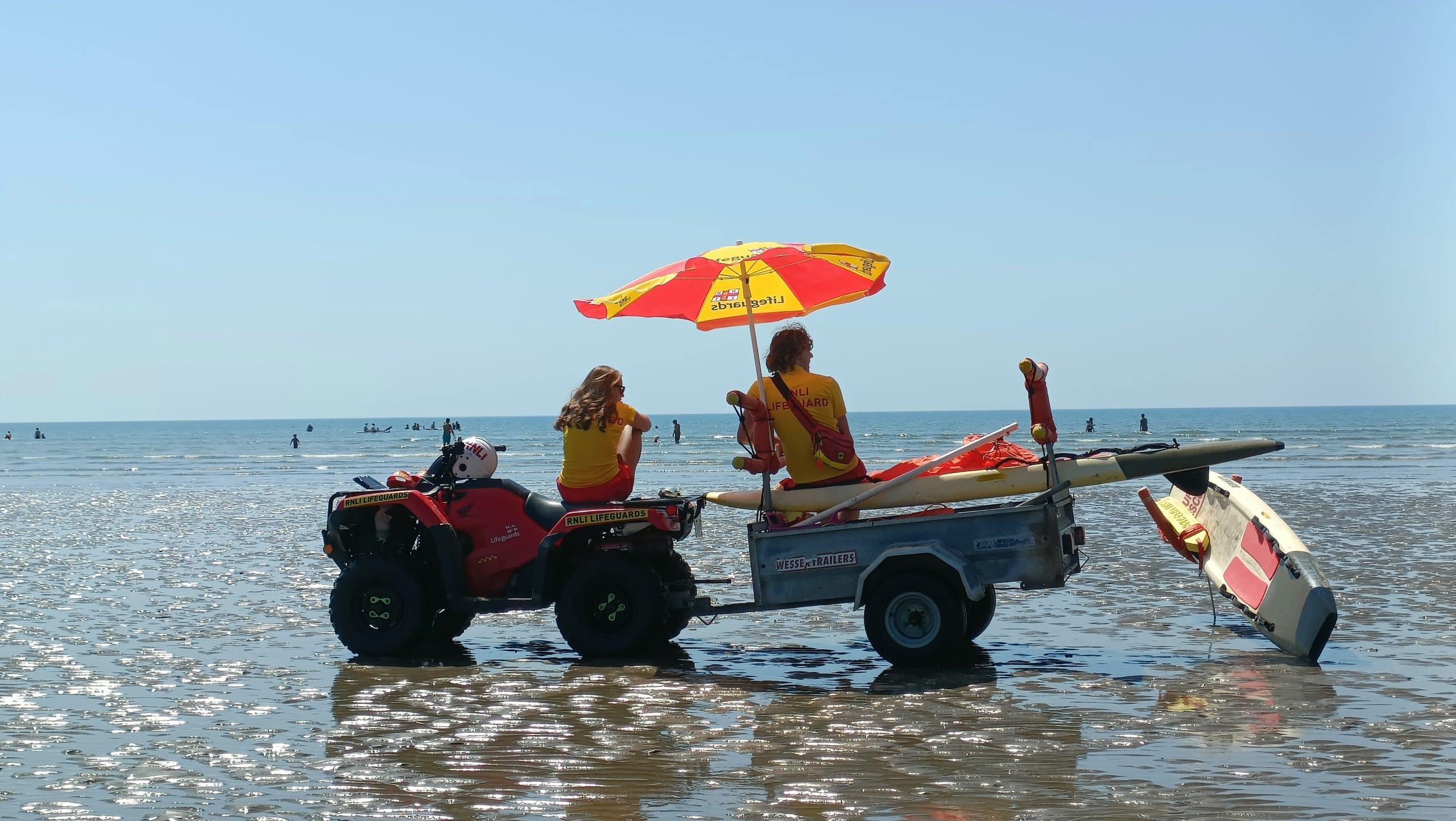Whitesands Beach in Pembrokeshire will continue to be patrolled on weekends only up until October half term.
Chris Cousens RNLI Water Safety Lead for the region said:
ŌĆśAs the season finishes for RNLI lifeguards in Wales, weŌĆÖre asking people to continue to take care and know how to stay safe at the coast.
ŌĆśWhen you visit a beach outside of the lifeguard season, we recommend going into the water with someone else – having someone with you means they can help you or get help in the event of an emergency. Take note of the safety signage at the entrance to the beach which will warn of the local risks and hazards. If possible, speak to someone who knows the area who might be able to provide advice and explain any dangers.
ŌĆśAlways check the weather conditions and tide times and consider your capabilities. If in doubt ŌĆō it is better to stay out of the water.
ŌĆśAlways carry a means of contact such as a mobile phone, if you get into trouble or see anyone else in difficulty call 999 or 112 and ask for the Coastguard.
ŌĆśWeŌĆÖre aware that cold water dipping into the autumn and winter is becoming increasingly popular. We advise avoiding do this alone ŌĆō itŌĆÖs safer and more fun to go with someone.
ŌĆśAs we get further into the winter months and the water temperature continues to drop. Enter the water slowly to acclimatise to the temperature and avoid cold water shock. Wearing a wetsuit will keep you warmer. Make sure you do not stay in the water for too long and that you have means of warming up afterwards.
ŌĆśBe seen by wearing a brightly coloured swim cap or using a tow float.
ŌĆśIf you get into trouble in the water, Float to Live. Tilt your head back with ears submerged and try to relax and control your breathing. Use your hands to help you stay afloat and then call for help or swim to safety if you can.ŌĆÖ
The winter months bring harsher conditions that can pose great risk to those visiting the beach. Bigger waves and stronger winds increase the likelihood and strength of rip currents.
Should you find yourself stuck in a rip current:
– DonŌĆÖt try to swim against it or youŌĆÖll get exhausted.
– If you can stand, wade donŌĆÖt swim.
– If you can, swim parallel to the shore until free of the rip and then head for shore.
– Always raise your hand and shout for help.
┬Ā
RNLI Float to Live advice:
- Tilt your head back, submerging your ears
- Relax and control your breathing
- Move your hands and legs around to help you stay afloat
- Your legs may sink, thatŌĆÖs ok ŌĆō we all float differently
- Practice swimming at a supervised location like a swimming pool.
Despite the coming absence of lifeguards on the beaches, the RNLI would like to remind the public that RNLI lifeboats are a 24-hour search and rescue service with 238 stations situated around the British Isles. When you call 999 and ask for the Coastguard, they dispatch the nearest lifeboat which will come to your aid.
Discover more from Carmarthenshire News Online
Subscribe to get the latest posts sent to your email.




